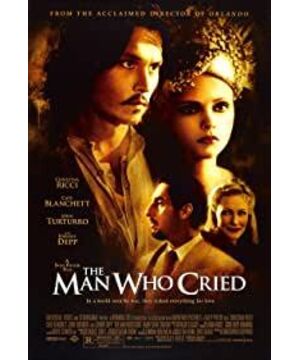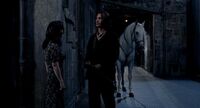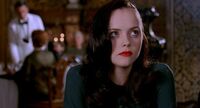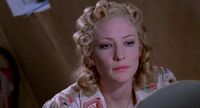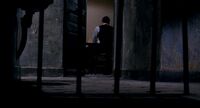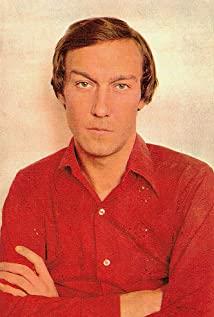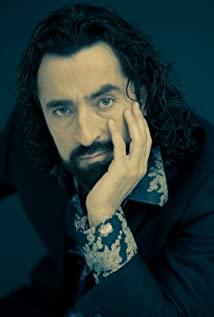Susie also has a seed.
The story takes place in 1972, the eve of the spread of Nazi ideology in Europe. Fei Ying'er, a 6-year-old Jewish girl, went to the United States to find her father who was working there when her village was looted, but got lost in the crowd and came to England after many setbacks. A childless couple adopted her and renamed her Susie. Soon, the school's teachers found that she inherited her father's talent for singing, and learned English through singing. Missing her father, Susie went to Paris ten years later, found a job in the choir, and became good friends with the Russian dancer Lola in the troupe. She worked hard to save money and wanted to buy a piece of music for the United States. Tickets and can escape the shadow of the Nazis. Because of Lola, they got a new job in the theater. Lola has his eyes on the rich and arrogant singer Dante, while the peaceful Susie falls in love with a gypsy horse trainer. But the shadow of the Nazis shrouded the city, Susie had to choose to go to the United States with Lola in order to survive, but Lola was being swallowed by the storm of the sea, Susie lay on her father's hand beside the hospital bed, and her father called Feiyinger, She sang Jewish songs from her childhood.
I really like the director's grasp of the film, whether it's the childhood Fei Ying'er, the girl's Susie, the ambitious Lola, the arrogant Dante, the loving father, the rebellious Gypsy, they are all so fresh. Live so you can see the seeds in their hearts, their roots, their textures. When she was a child, Feiying's eyes were innocent, helpless and stubborn, but she was so aura. When she grew up, Susie had the same big eyes, but she was more calm and strong. The way she lowered her eyebrows and spoke, she told you with her eyes and told you with a smile that she was a stunner. Lola's eyes are realistic, flattering, seductive, like knives, and it is not enough to strip the man in front of her, because she is kind, so she always makes it difficult for men to refuse.
I have to talk about the music in the film, I can't tell the opera, the girl's unaccompanied a cappella, the intense gypsy music, the music in the whole film is like the soul of the film, making you hypnotized again and again. Wake up again. I also really like the director's shots, which are delicate and beautiful. It makes you understand how a woman's eyes are ecstatic, like the skin sticking to your back.
2004/7/3
View more about The Man Who Cried reviews


